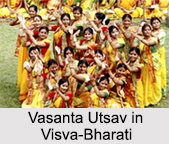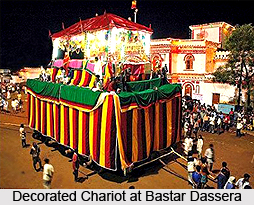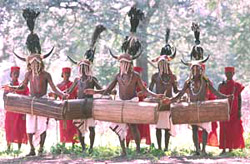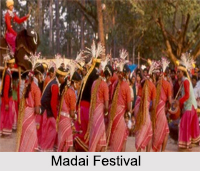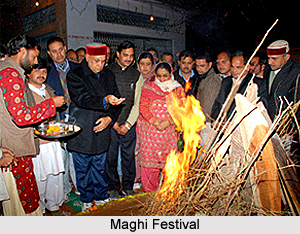 Maghi Festival is widely celebrated in the state of Punjab. Maghi in Punjab is the day when the sun starts taking a northern course when it enters the sign of `Makara` or Capricorn. The day of Maghi is one of great rejoicing as it marks the end of the inauspicious month of Poh. The period of Poh is considered an extremely inauspiscious one when all the ceremonies, the undertaking of journeys and even shifting residence is avoided by the orthodox Hindus.
Maghi Festival is widely celebrated in the state of Punjab. Maghi in Punjab is the day when the sun starts taking a northern course when it enters the sign of `Makara` or Capricorn. The day of Maghi is one of great rejoicing as it marks the end of the inauspicious month of Poh. The period of Poh is considered an extremely inauspiscious one when all the ceremonies, the undertaking of journeys and even shifting residence is avoided by the orthodox Hindus.
Legend of Maghi Festival
According to legend, Durvasha Rishi had once visited the Ashram of Dronacharya in search of Samaddhis and or fuel sticks to light up the sacred fire. Dronacharya was not present at the time of the Rishi`s visit. However, his wife Kripi, who was home, received the sage with due reverence. During the course of their conversation, she mentioned to the Rishi how desolate and destitute the couple was. They had no issue and an old cow was their only worldly possession. The Rishi was greatly moved by her condition. In order to help her, he advised her to bathe in the Holy Ganga River and present curds to a Brahmin on Maghi day. Having followed the Rishi`s instructions, Kripi got a son and the couple became prosperous. This child of Dronacharya and Kripi later grew up to become the famous warrior Ashvathama of the Mahabharata.
Maghi also happens to be the day on which Bhishma, the octogenarian leader of the Kauravas of Mahabharat, emancipated his soul from the bondage of his body by a conscious act of will. This happened after he had discussed and discoursed for many days on the mysterious of life and death as he lay wounded on the battlefield, pierced by many arrows.
Celebration of Maghi Festival
Makar Sankranti is one of the great bathing days among the Hindus, like on the day of an eclipse at Kashi (Varanasi), on the day of Makrah at Prayaga (Allahabad) and on the day of Ram Navami at Ayodhya. Every twelfth year, the Magh Mela is held at Allahabad on a colossal scale when it is called Kumbh.
On the Maghi, the Hindus take a bath in the holy waters of the Ganga River. If this is not possible, then they bathe in some river, pond, rivulet or canal. It is a day of fast and worship of the sun. They donate a mixture of rice and some pulse, ghee and salt to the Brahmin. `Khichri` (cooked rice and pulses) is a standard dish for the meals of the family. Sweets having sesame as an ingredient is also eaten as it is believed that oilseeds impart resistance against colds.

